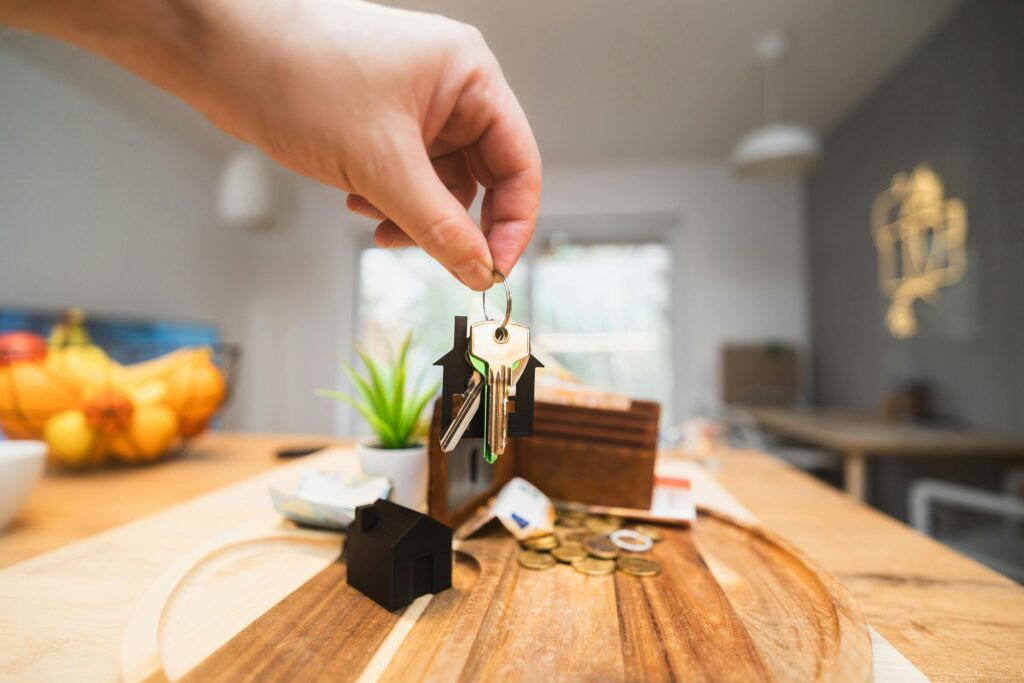Steps to Buying Your First Home
Buying a home is exciting… and terrifying.

For most people, buying a home is the biggest financial decision they’ll ever make. It’s exciting, overwhelming, and—if you’re not careful—can lead to major financial mistakes.
You’ve probably heard the horror stories: hidden costs, bad mortgage deals, and buyers drowning in debt before they even unpack. But it doesn’t have to be that way. If you follow the right process, buying a home can be one of the best wealth-building moves you’ll ever make. Let’s break it down step by step.
Step 1: Get Your Finances in Order (Before You Even Look at Homes)
Too many first-time buyers start house hunting before they check their finances—and that’s a huge mistake.
Before you even think about house hunting, you need to answer some key questions:
1️⃣ What’s your credit score?
A higher credit score gets you lower mortgage interest rates. If your score is below 700, you might want to work on improving it first.
• 760+ → Best interest rates
• 700-759 → Good rates, but not the lowest
• 620-699 → Acceptable, but expect higher rates
• Below 620 → Likely need an FHA or alternative loan
2️⃣ How much house can you afford?
A good rule of thumb: Your monthly mortgage payment should be no more than 28% of your gross monthly income.
Example: If you earn $5,000/month before taxes, your mortgage payment should be $1,400 or less.
3️⃣ Do you have enough saved for a down payment?
The typical down payment is 10-20% of the home price, but there are lower-down-payment loan options.
• 20% Down → No mortgage insurance required, lower monthly payment
• 10% Down → Mortgage insurance required, higher payment
• 3-5% Down → First-time buyer loans available, but higher interest along with mortgage interest
4️⃣ What about closing costs?
Many buyers forget about closing costs, which can add 2-5% to the purchase price.
Example: On a $300,000 home, closing costs could be $6,000 – $15,000.
Pro Tip: If you have credit card debt or high-interest loans, tackle those before buying a house. A mortgage is a long-term commitment—you don’t want to add it on top of other financial stress.
Step 2: Get Pre-Approved for a Mortgage
A pre-approval letter isn’t just a piece of paper—it’s your golden ticket to serious home shopping.
Sellers take buyers with pre-approvals more seriously, and it helps you lock in better loan terms.
What does pre-approval involve?
• A lender will check your credit, income, and debt-to-income ratio.
• You’ll find out exactly how much house you can afford.
• It locks in an interest rate for a set period.
Without a pre-approval, you’re house-hunting blind.
Step 3: Find the Right Home (Without Falling in Love Too Fast)
Now comes the fun part: house hunting. But don’t make the #1 mistake first-time buyers make—falling in love with a house before thinking logically.
It’s easy to get caught up in aesthetics—granite countertops, big yards, and fancy kitchens—but those things won’t matter if you’re struggling to make mortgage payments.
✅ Make a must-have list. What’s non-negotiable? (Location, size, number of bedrooms, etc.)
✅ Check the neighborhood. What’s the crime rate? School ratings? Commute time?
✅ Think long-term. Will this home still meet your needs in 5-10 years?
Pro Tip: Visit homes at different times of the day. A quiet neighborhood at noon might turn into a traffic nightmare at 5 PM.
Step 4: Make an Offer & Negotiate Like a Pro
Found the right house? Now it’s time to make an offer—but don’t assume you have to pay full price.
Your real estate agent will help you submit an offer based on:
1️⃣ Market Conditions (Buyer’s vs. Seller’s Market)
• Buyer’s Market → More homes for sale than buyers, meaning you have negotiation power to get a better deal.
• Seller’s Market → More buyers than homes, so you may need to offer above asking price to stay competitive.
2️⃣ The Home’s Condition
If the house needs major repairs (roof issues, old plumbing, etc.), you might be able to offer less or ask the seller to cover some costs.
3️⃣ Comparable Sales (Comps)
Your agent will look at recently sold homes in the same neighborhood to determine if the home is fairly priced or overpriced.
Don’t forget negotiations! You can ask the seller to cover some closing costs, make repairs, or adjust the price.
Pro Tip: If your offer gets rejected, don’t panic. Many deals go through multiple rounds of negotiation before closing.
Step 5: Get a Home Inspection (Even If the House Looks Perfect)
Skipping a home inspection is like buying a car without test-driving it first. Even a newly built home that no one has lived in yet will have things pop up on the inspection. The inspector is there to go over it with a fine tooth comb. Remember, no house is perfect. Your inspection report will probably be several pages long no matter what. Don’t fret! That’s the point of them. Some items on the report won’t be a big deal, but others could be detrimental.
An inspector will check for:
• Foundation issues (Cracks or structural damage)
• Roof problems (Leaks, missing shingles)
• Plumbing & electrical issues (Outdated wiring, leaks)
• Mold & pest infestations
If serious issues come up, you can renegotiate—either asking the seller to fix them or lowering the price.
Step 6: Secure Your Mortgage & Finalize the Paperwork
Once your offer is accepted, it’s time to finalize your mortgage.
What happens next?
• Submitting final financial documents to your lender
• Getting a home appraisal to confirm the value
• Locking in your interest rate
Be prepared for paperwork overload. Your lender will need bank statements, tax returns, and employment verification.
Pro Tip: Don’t make big financial changes right now. Avoid applying for new credit cards, making large purchases, or switching jobs—these can all impact your loan approval.
Step 7: Closing Day - Getting the Keys to Your New Home
Closing day is the finish line—but it comes with one final step: signing a mountain of paperwork.
✅ Final walkthrough – One last check to ensure everything is as agreed.
✅ Sign the mortgage & legal documents – This makes the home officially yours.
✅ Pay closing costs – Typically 2-5% of the home price.
Final Thoughts: Buying a Home the Right Way
Buying a home is one of the best ways to build wealth, but only if you buy smart.
